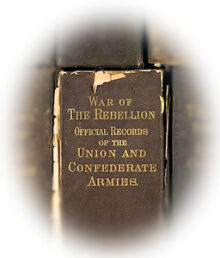EXECUTIVE DEPARTMENT,
Montgomery, Ala., January 28, 1861.
Hon. WM. M. BROOKS, President State Convention:
SIR: The following resolution has been handed me by the secretary of the Convention:
Resolved, That his excellency the governor be requested to communicate to this Convention forthwith any information he may have in reference to the propriety of withdrawing or continuing in service the troops now at Pensacola.
In answer to the foregoing resolution, I submit the following facts: On the 19th January the following dispatch was received by Colonel Chase at Pensacola, to wit:
WASHINGTON, January 18, 1861.
Col. W. H. CHASE:
Yours received. We think no assault should be made. The possession of the fort is not worth one drop of blood to us. Measures pending unite us in this opinion. Bloodshed may be fatal to our cause.
Signed by Senators Mallory, Yulee, Slidell, Benjamin, Iverson, Hemphill, Wigfall, Clay, Fitzpatrick, and Davis.
Since the receipt of this dispatch, I have had a conference with Senator Mallory, of Florida, and Senator Fitzpatrick, of Alabama, in reference to the reasons upon which it was predicated, in which they informed me that they and Senator Slidell had a personal interview with the President and Secretary of the Navy, and were assured by them that no attack would be made upon Fort Sumter and Fort Pickens, or any excuse given for the shedding of blood, during the present administration, and that they deemed it of great importance that no attack should be made by South Carolina upon Fort Sumter, or by the troops of the seceding States upon Fort Pickens, in the present aspect of affairs. I was also informed by them that it was the policy of the Republican party to force a conflict between the Federal Government and the seceding States before the inauguration of Mr. Lincoln, so that the responsibility of commencing a war should not be cast upon him. It was further stated by Mr. Mallory that a special messenger had been sent by the Secretary of the Navy to the officer in command at Fort Pickens, directing that officer to prevent the ships which had been ordered to Pensacola from entering the bay. The officer sent was Captain Barron, of Virginia, in company with Mr. Mallory.
This is all the information now in my possession in reference to the attitude of the Federal Government and the seceding States.
In reference to the forces at Pensacola, I am informed by Colonel Chase that some companies from Mississippi, now at Pensacola, are desirous of returning home, being planters, business men, &c. He has asked me what must be done in regard to this matter. I have answered him by telegraph that the troops are under the orders of the governor of Florida, and that the governor of Alabama cannot specially interfere with the Mississippi troops.
I have also received a dispatch from his excellency J. J. Pettus, governor of Mississippi, inquiring how long the Mississippi troops were desired to remain at Pensacola. I have telegraphed him that the governors of Florida and Mississippi have alone the right to control the troops of Mississippi.
Notwithstanding it now appears from the authority above given that no attack is to be made upon the forts at Pensacola now in the possession of our forces at that point, I deem it inexpedient that all the troops should be withdrawn. It is important that we should be provided for any emergency that may occur, and that a sufficient number of troops should be drilled and ready to meet it. If the troops should all be withdrawn from Pensacola, it may have a demoralizing effect upon them and upon volunteers generally, unless kept under orders at some other point. It would be more expensive to the State to transport them to some other position and keep them under arms than to permit them to remain at Pensacola.
The withdrawal of the troops from Pensacola might induce the belief among the Black Republicans that resistance was not intended if coercion were attempted on their part, and thus give encouragement to them.
I have now briefly given the information in my possession, and also my opinion with regard to the withdrawal of the troops from Pensacola.
Very respectfully,
A. B. MOORE.
